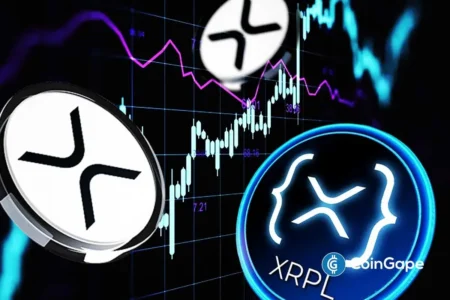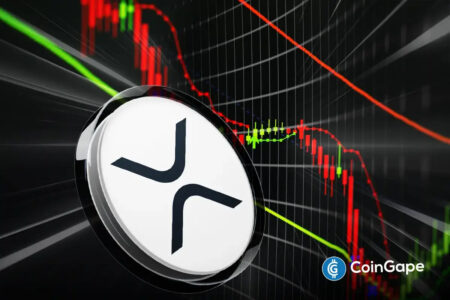VanEck’s Groundbreaking Application for a Lido Staked Ethereum ETF: A Step Towards Regulated Crypto Investments
Introduction to VanEck’s Application
VanEck, a significant player in the investment management space with $133 billion in assets under management (AuM), has recently made headlines by filing a preliminary application for a Lido Staked Ethereum ETF with the U.S. Securities and Exchange Commission (SEC). This filing marks a crucial development, as VanEck becomes the first issuer to seek approval for an ETF that incorporates Lido’s staked Ethereum, coinciding with the recent implementation of Generic Listing Standards. These standards are pivotal in streamlining the approval process for crypto-based ETFs and reflect the growing acceptance of digital assets in traditional finance.
What Sets the Lido Staked Ethereum ETF Apart?
The proposed Lido Staked Ethereum ETF aims to provide investors with regulated exposure to both Ethereum (ETH) and the associated staking rewards generated through the innovative liquid staking protocol Lido. The ETF is designed to track the spot prices of stETH, a token representing staked Ethereum, based on MarketVector’s recently established Lido Staked Ethereum Benchmark Rate index. This move allows investors to gain not only from price appreciation in Ethereum but also from the yields earned through staking, positioning the ETF as an appealing alternative for those looking to capitalize on the burgeoning DeFi landscape.
Understanding Liquid Staking with Lido
Lido’s liquid staking protocol revolutionizes how users can stake their Ethereum without the complexities of operating validator nodes. With over 8.49 million ETH, valued at more than $33.37 billion, currently staked on the platform, Lido holds a dominant market share of 59.88%, per DeFiLlama data. The stETH token issued by Lido stands as a significant prerequisite for the ETF, as it serves as a liquid representation of staking yields, making it easier for investors to navigate the typically illiquid nature of staked assets. This unique feature of Lido not only simplifies the staking process for participants but also enhances liquidity in the market.
Implications of SEC’s Generic Listing Standards
The SEC’s introduction of Generic Listing Standards plays a pivotal role in the approval timeline for crypto ETFs, slashing the typical review period from 240 days to a more manageable 75 days under the Securities Act of 1933. This change is particularly beneficial for VanEck, as it could expedite the approval process for its Lido Staked Ethereum ETF, allowing it to capitalize on the growing interest in cryptocurrency investments. However, market conditions remain uncertain, and the crypto community is keenly awaiting the SEC’s decision on allowing staking in spot Ethereum ETFs amid ongoing governmental complexities.
Market Response to the Announcement
Following the announcement of VanEck’s ETF application, traders exhibited cautious behavior, responding to the current volatility in the crypto market. Lido Staked ETH (stETH) experienced a drop of over 3%, trading at approximately $3,867.53 at the time of writing, with a 24-hour trading range between $3,835.96 and $4,066.89. The recent spike in trading volume by 40% indicates a trend of cautious trading amid broader market uncertainties. Investors are understandably hesitant, seeking clarity on how regulatory developments will impact their strategies in the volatile crypto landscape.
The Road Ahead for Staking in Crypto ETFs
As the crypto community closely monitors the SEC’s deliberation on staking provisions for spot Ethereum ETFs, the market’s attention also shifts towards Grayscale, which recently enabled staking in its Ethereum Trust ETF (ETHE) and Ethereum Mini Trust ETF (ETH). Despite being the first U.S. spot crypto exchange-traded products (ETPs) to offer staking, Grayscale’s products have seen minimal inflows compared to other U.S. ETF issuers, highlighting the cautious approach investors are currently adopting. The approval of the VanEck Lido Staked Ethereum ETF could significantly alter this dynamic, potentially opening the doors for greater inflows and interest in staked crypto assets.
Conclusion
VanEck’s pioneering application for a Lido Staked Ethereum ETF indicates a profound shift in the acceptance and integration of cryptocurrency within traditional investment frameworks. As we await the SEC’s decision, the event not only illustrates the expanding regulatory landscape for crypto assets but also underscores the growing interest in decentralized finance solutions. Should this ETF receive approval, it could mark a tipping point for institutional investors, enabling broader participation in the cryptosphere and solidifying the role of digital assets in diversified investment portfolios. The landscape of cryptocurrency investments is set to evolve, and with it, exciting opportunities for savvy investors who wish to navigate the future of finance.
















